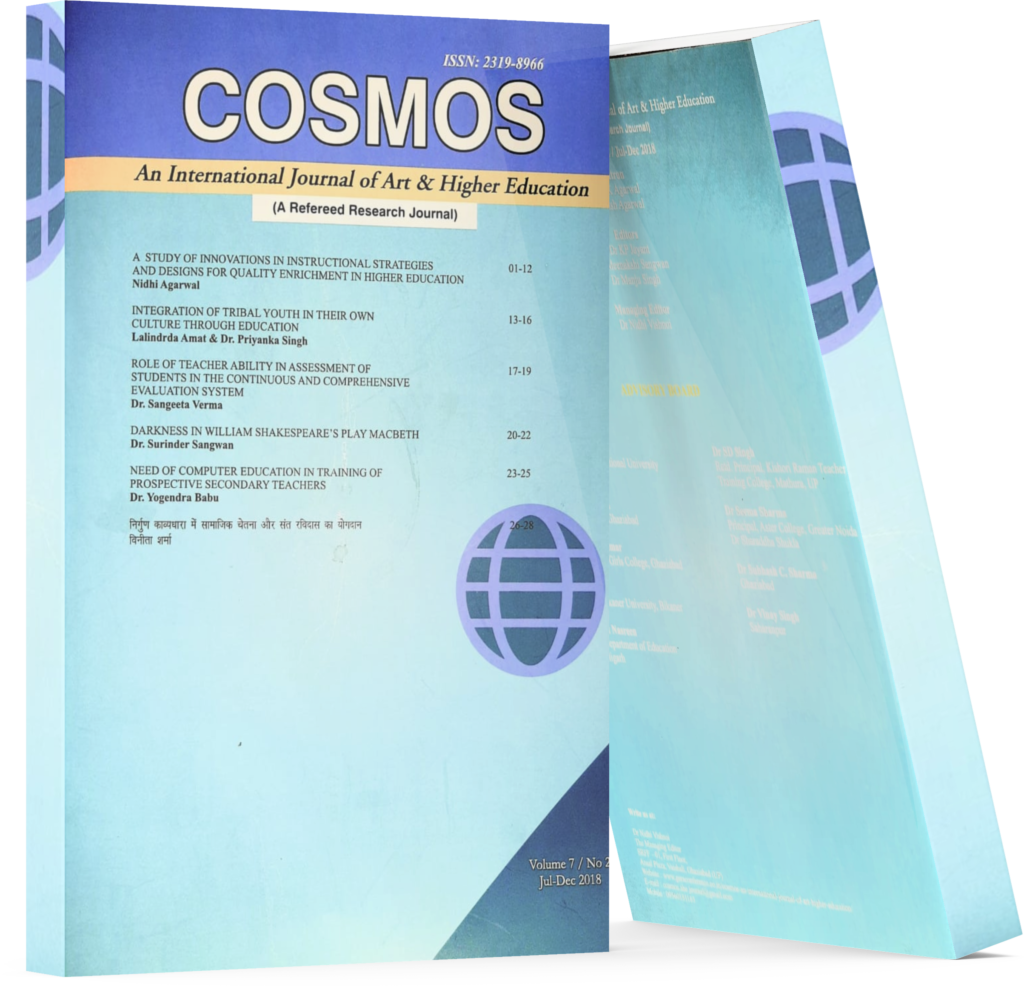The Effects Of Toxic Agricultural Wastes On The Environment And Their Management
Keywords:
Agricultural Waste, Generation, Management, Utilization, Environment, HealthAbstract
Agricultural wastes are non-product outputs of production and processing of agricultural products that may contain material that can benefit man but whose economic values are less than the cost of collection, transportation, and processing for beneficial use. Estimates of agricultural waste arising are rare, but they are generally thought of as contributing a significant proportion of the total waste matter in the developed world. Agricultural development is usually accompanied by wastes from the irrational application of intensive farming methods and the abuse of chemicals used in cultivation, remarkably affecting rural environments in particular and the global environment in general. Generally, agricultural wastes are generated from a number of sources notably from cultivation, livestock and aquaculture. These wastes are currently used for a number of applications through the ‘3R’ strategy of waste management. Agricultural waste management system (AWMS) was discussed and a typical waste management options for a poultry farm was also described using the six agricultural waste management functions. Agricultural waste has a toxicity potential to plant, animals and human through many direct and indirect channels. The effects of these toxic agricultural wastes on the environment were discussed as well as their management.
Downloads
References
Agamuthu, P. (2009). Challenges and opportunities in Agro-waste management: An Asian perspective. Inaugural meeting of First Regional 3R Forum in Asia 11 -12 Nov., Tokyo, Japan.
Brown and Root (1997). Environmental Consultancy Group. Environmental review of national solid waste management plan. Interim report submitted to the Government of Mauritius.
Overcash, M. R. (1973). Livestock waste management, F. J. Humenik and J. R. Miner, eds. CRC Press, Boca Raton.
Dien, B. V. and Vong, V. D. (2006). Analysis of pesticide compound residues in some water
sources in the province of Gia Lai and DakLak. Vietnam Food Administrator.
Hai, H. T. and Tuyet, N. T. A. (2010). Benefits of the 3R approach for agricultural waste management (AWM) in Vietnam. Under the Framework of joint Project on Asia Resource Circulation Policy Research Working Paper Series. Institute for Global Environmental Strategies supported by the Ministry of Environment, Japan.
Thao, L. T. H. (2003). Nitrogen and phosphorus in the environment. Journal of Survey Research, 15(3), 56-62.
Miller, D. and Semmens, K. (2002). Waste Management in Aquaculture. Aquaculture information series, Extension Service, West Virginia University.
Mathieu, F. and Timmons, M. B. (1995). Techniques for Modern Aquaculture. J. K. Wang (ed.), American Society of Agricultural Engineers, St. Joseph, MI.
Timbers, G. E. and Downing, C. G. E. (1977) Agricultural Biomass Wastes: Utilization routes. Canadian Agricultural Engineering, 19(2), 84-87.
Ajmal, M., Rao, R. A. K., and Siddiqui, B. A. (1996). Studies on Removal and Recovery of Cr (VI) from Electroplating Wastes. Water Research, 30(6), 1478-1482.
Mokwunye, U. (2000). Meeting the phosphorus Needs of the soils and crops of West Africa: The Role of Indigenous Phosphate rocks. Paper presented on Balanced Nutrition Management systems for the Moist Savanna and Humid Forest Zones of Africa at a symposium organized by IITA at Ku Leuva at Cotonun, Benin Republic.
Gupta, V. K., Gupta, M. and Sharma, S. (2001). Process development for the removal of lead and chromium from aqueous solution using red mud – an aluminum industry waste. Water Research, 35(5), 1125 – 1134.
Chand, S., Aggarwal V.K. and Kumar P. (1994). Removal of Hexavalent Chromium from the Wastewater by Adsorption. Indian J Environ. Health, 36(3), 151-158.
Mohan, D. and Singh, K. P. (2002). Single and Multi-Component Adsorption of Cadmium and Zinc using Activated Carbon Derived from Bagasse – An Agricultural Waste. Water Research, 36, 2304-2318.
Ayub, S., Ali, S. I. and Khan, N. A. (2002). Adsorption studies on the low cost adsorbent for the removal of Cr (VI) from electroplating wastewater. Environmental Pollution Control Journal, 5(6): 10 – 20.

